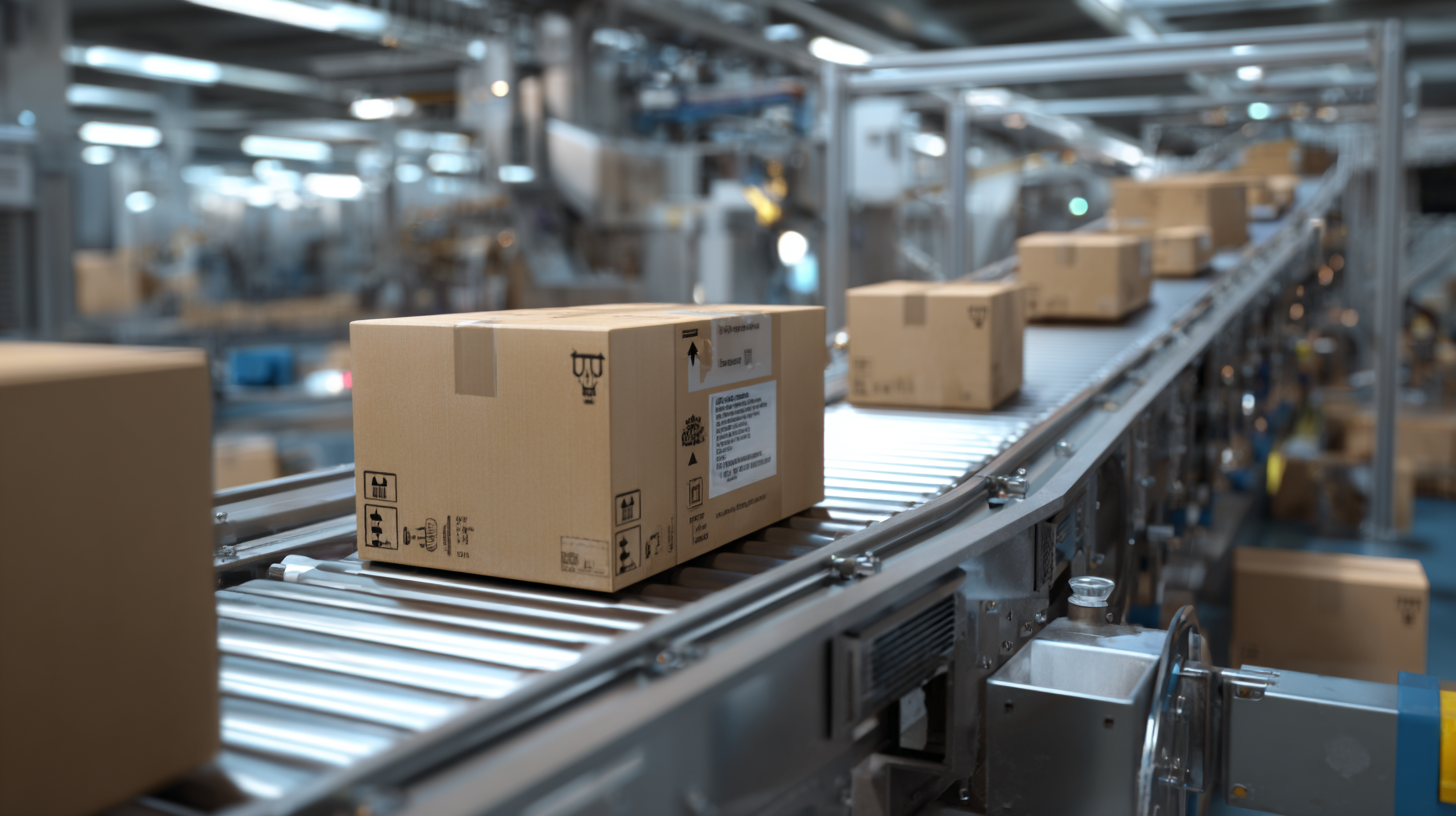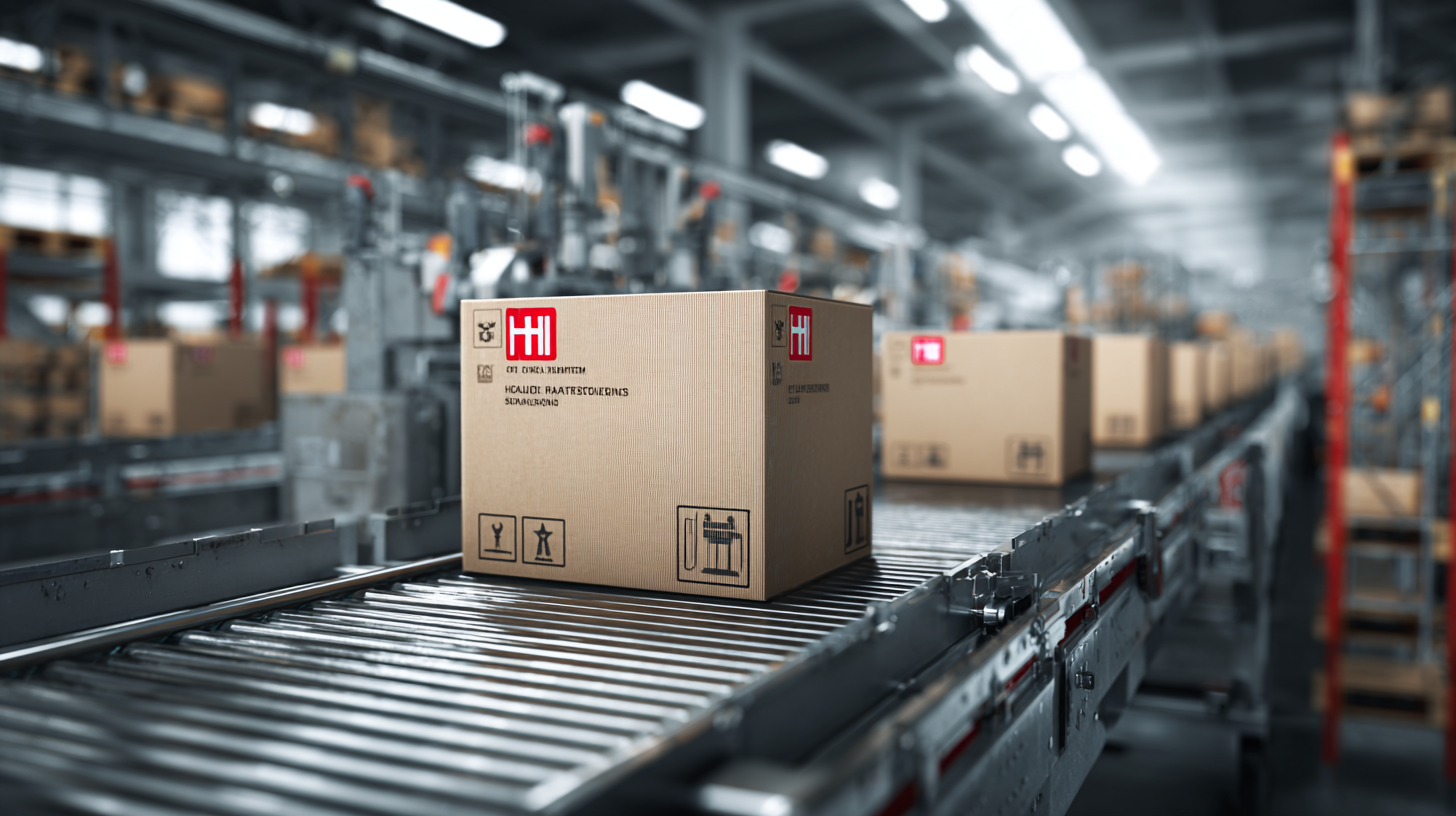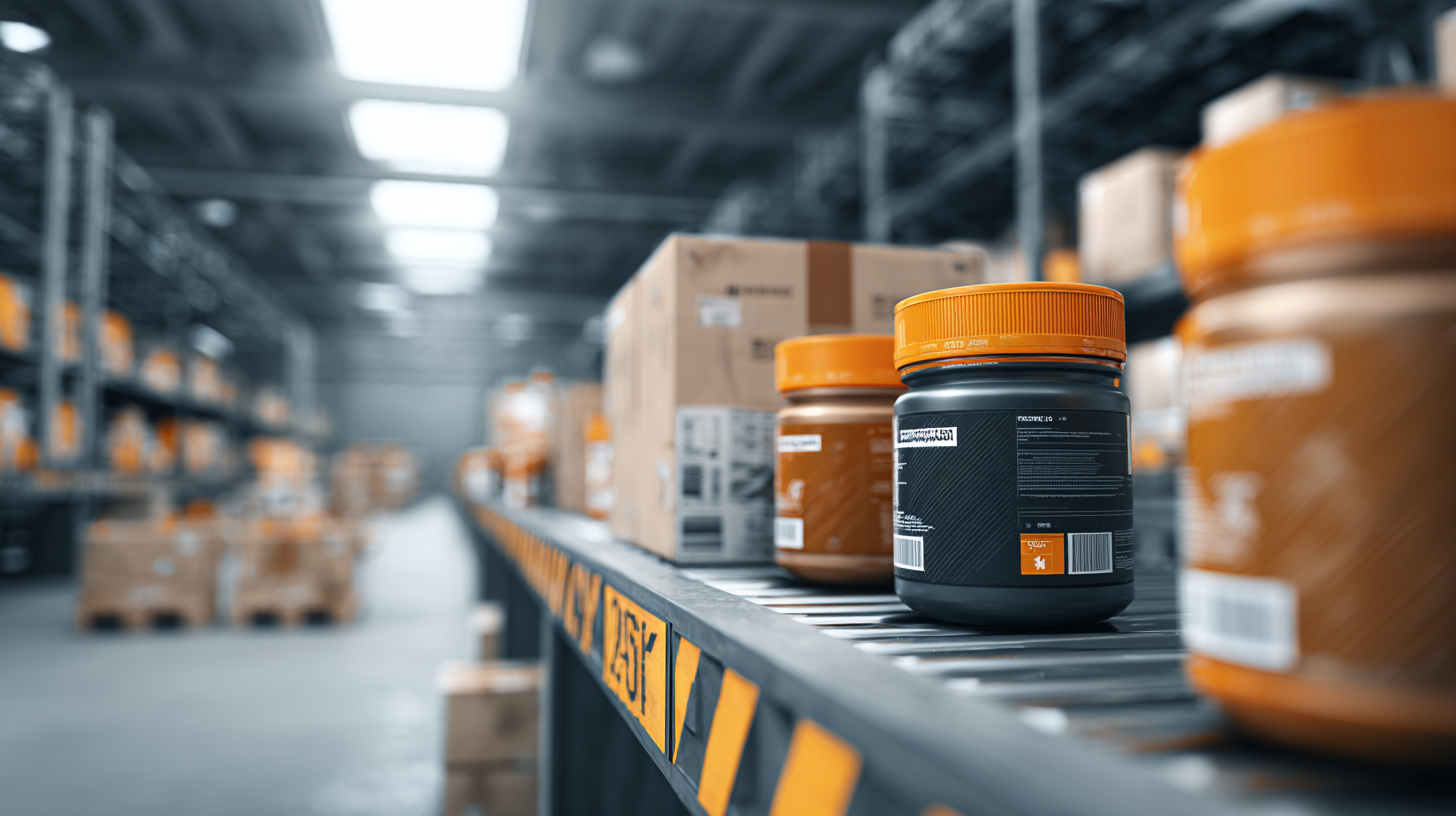In today’s dynamic market, the right choice of manufacturer can significantly influence the efficiency and efficacy of your Industrial Packaging solutions. According to a recent report by Smithers Pira, the global industrial packaging market is projected to reach $70 billion by 2024, fueled by the increasing demand for durable and sustainable packaging options. Furthermore, a study by Mordor Intelligence reveals that the growth rate of industrial packaging is expected to outpace other packaging segments, primarily driven by advancements in materials and technology. As industries continue to expand, selecting a manufacturer who not only understands the technicalities of industrial packaging but also aligns with your business goals is essential for optimizing logistics and ensuring product safety. Thus, navigating through the myriad of options available is crucial for businesses aiming to achieve long-term success and sustainability in their operations.

Understanding your industrial packaging needs is crucial for selecting the right manufacturer and ensuring optimal solutions. As the lightweight packaging market is projected to reach $97.6 billion by 2024, with an impressive compound annual growth rate (CAGR) of 8.2% through 2034, businesses must recognize the increasing importance of lightweight packaging, especially in sectors like e-commerce and food and beverage. This growth signifies a trend toward more sustainable and efficient packaging options, which directly impacts manufacturers' offerings.
Moreover, the folding carton packaging segment is also on an upward trajectory, with an estimated market size of over $20.06 billion in 2024, expected to grow at a CAGR of around 5.9% until 2034. This increase is largely driven by the surging demand from the food and beverage industry. Additionally, the reusable transport packaging (RTP) market is anticipated to reach $113.2 billion, growing at a rate exceeding 5.8% in the same period. These statistics underline the necessity of aligning your packaging strategies with market trends to ensure your chosen manufacturer can deliver solutions that meet your evolving industrial packaging needs.
| Packaging Type | Material | Application | Sustainability | Cost Effectiveness |
|---|---|---|---|---|
| Boxes | Corrugated Cardboard | Shipping and Storage | Recyclable | Low Cost |
| Pallets | Plastic | Heavy Lifting and Storage | Reusable | Moderate Cost |
| Bags | Plastic | Product Packaging | Not Recyclable | Low Cost |
| Containers | Glass | Food and Beverages | Recyclable | High Cost |
| Shrink Wrap | Polyethylene | Bundling Products | Not Recyclable | Low Cost |
When it comes to selecting the right packaging manufacturer, several key factors should drive your decision-making process. First and foremost, consider the manufacturer’s experience and expertise in the specific type of packaging you require. A manufacturer with a proven track record in your industry will not only understand your needs but also anticipate potential challenges, ensuring that your products are packaged efficiently and safely.

Another critical aspect to evaluate is the manufacturer’s production capabilities and technology. Modern packaging solutions often rely on advanced techniques and machinery to meet high-quality standards. Assess whether the manufacturer uses cutting-edge technology that can provide innovative and customized solutions tailored to your products. Additionally, supplier flexibility and customer service are vital; a responsive manufacturer who can adapt to changing demands will help you stay competitive in the market. Overall, a combination of experience, technology, and service is essential for selecting the ideal packaging partner.
When selecting an industrial packaging manufacturer, evaluating their manufacturing capabilities is crucial to ensure they can meet your specific needs. Start by examining their production technology and processes. Advanced machinery and automation can significantly enhance efficiency, precision, and flexibility, allowing for quicker turnaround times and better quality control. A manufacturer that invests in state-of-the-art equipment demonstrates a commitment to innovation and reliability, which are essential factors in competitive markets.
Another important aspect is the manufacturer's experience and expertise in your industry. Look for partners that have a proven track record in producing packaging solutions tailored to your sector. They should understand the unique challenges and standards required, whether it’s compliance with safety regulations or environmentally-friendly practices. Additionally, inquire about their ability to scale production — a capable manufacturer should manage both small runs and large orders without compromising quality. This ensures that as your business grows, your packaging partner can adapt and continue to support your evolving needs effectively.

In the industrial packaging sector, quality assurance and compliance play a pivotal role in ensuring that products reach their destination safely and effectively. According to a 2021 report by Smithers Pira, the global packaging market is expected to grow to $1 trillion by 2024, underscoring the increasing demand for high-quality packaging solutions. Manufacturers must prioritize quality assurance to maintain their competitive edge, as failing to comply with industry regulations can lead to significant economic repercussions and damage to brand reputation.
Moreover, compliance with international standards such as ISO 9001 for quality management systems is essential for manufacturers aiming to cater to a global clientele. Reports indicate that companies implementing robust quality assurance processes can reduce waste by up to 30%, thereby enhancing overall efficiency. Furthermore, maintaining compliance fosters trust with customers and partners, as it guarantees that products meet safety and performance standards. As businesses navigate the complexities of the packaging industry, focusing on quality assurance and adherence to regulations will be crucial for long-term success and sustainability.
Building long-lasting relationships with manufacturers is crucial for achieving the best industrial packaging solutions. As highlighted in the 2025 Manufacturing Industry Outlook, manufacturers are increasingly prioritizing targeted investments in digital and data infrastructure. This investment not only enhances innovation but also helps address the persistent skills gap within the industry, fostering an environment where collaboration with manufacturers can thrive. Companies that focus on strengthening their digital foundations are better equipped to form strategic partnerships that yield sustainable results.
Moreover, the emphasis on organizational health remains paramount for those seeking to build enduring manufacturer relationships. Research indicates that organizations prioritizing their internal health tend to be more resilient, which is essential when navigating challenges like supply chain disruptions or unforeseen regulatory changes, such as China's recent export restrictions on rare earth elements. By developing a compelling narrative and a robust communication strategy, industry leaders can foster meaningful connections with manufacturers, paving the way for collaboration that enhances both parties' capacities and addresses evolving market demands.
